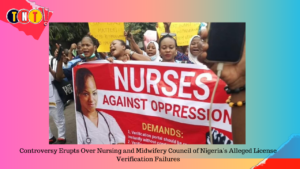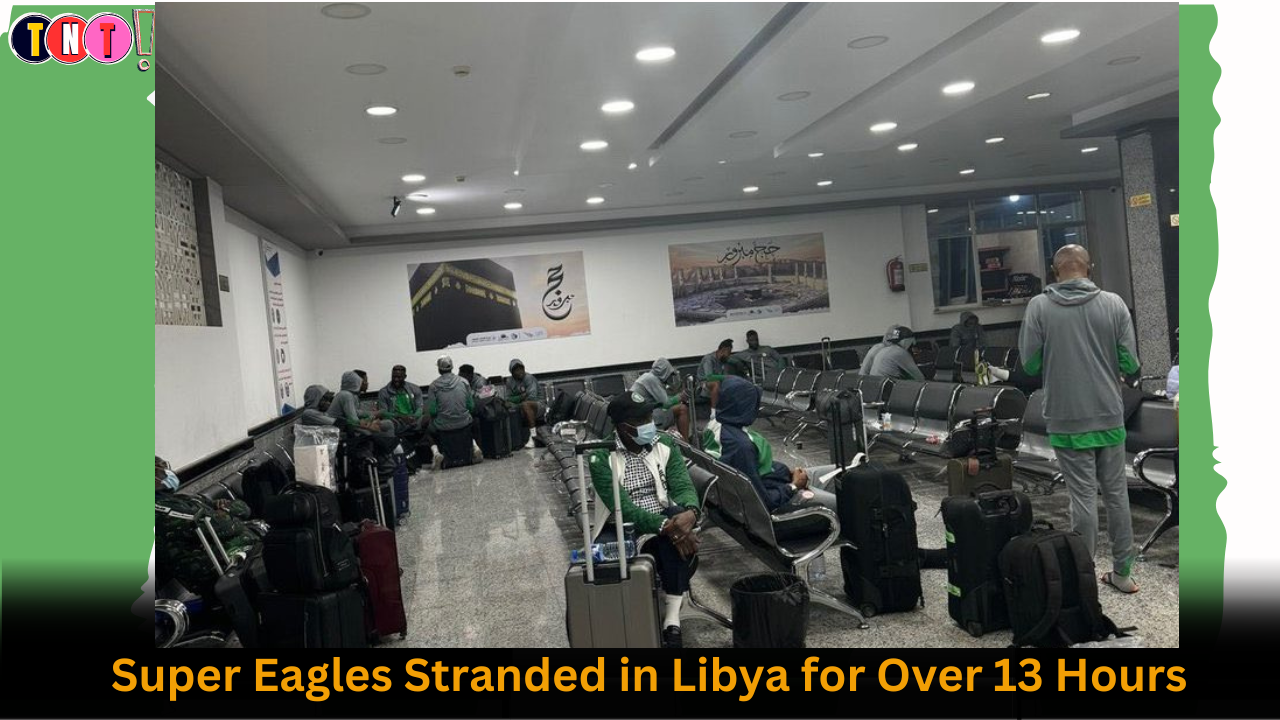The Nursing and Midwifery Council of Nigeria (NMcN) has come under intense scrutiny following allegations that it has been failing to verify the licenses of Nigerian nurses seeking opportunities abroad. These accusations, highlighted by the popular physician Olufunmilayo on the social media platform X, have sparked widespread concern and criticism, particularly from the Nigerian healthcare community.

Allegations of Professional Imprisonment
In a detailed post, Olufunmilayo claimed that the NMcN’s refusal to verify licenses has trapped many Nigerian nurses in the country against their will, effectively preventing them from pursuing better job opportunities overseas. He further explained that this issue is not only affecting those who wish to leave Nigeria but also nurses already working abroad who rely on the NMcN to validate their credentials. The lack of verification has reportedly led to job losses among these nurses, a situation Olufunmilayo described as “professional imprisonment.
The Impact of the NMcN’s Decision
Olufunmilayo’s post emphasized the severe implications of the NMcN’s actions:
Restricted Movement for Licensed Nurses: Nigerian nurses who are licensed by the NMcN are unable to relocate to other countries like the United Kingdom, the United States, or Saudi Arabia to find employment. This ruling has effectively barred them from seeking better opportunities abroad.
Stranded Nurses Abroad: Nurses who received their training in Nigeria and are currently working overseas are also affected. They cannot relocate from one country to another, such as moving from the UK to the US or Canada, because their credentials remain unverified. This leaves them stranded in their current location with limited professional mobility.
A Call for Change
Olufunmilayo criticized the NMcN’s actions as a form of professional hostage-taking, arguing that it is an illogical and counterproductive approach to the challenges faced by Nigerian healthcare professionals. He highlighted the difficult working conditions Nigerian nurses endure—excessive workloads, low pay, abuse, lack of appreciation, and overall job dissatisfaction. According to him, these are the reasons nurses seek to leave the country.
Instead of preventing nurses from leaving, Olufunmilayo called for systemic changes that would address the root causes of their dissatisfaction. He advocated for better salaries, improved working conditions, and a more supportive environment that would encourage nurses and other healthcare professionals to remain in Nigeria voluntarily.
Broader Implications for the Healthcare Sector
The controversy extends beyond just nurses. Olufunmilayo warned that other healthcare professionals, such as doctors, dentists, pharmacists, nutritionists, optometrists, and even engineers and physical therapists, could face similar restrictions in the future. He urged the public to raise their voices in support of these nurses, stressing that the broader healthcare system is at risk if such practices continue.
A Plea for Patient Care
Olufunmilayo also addressed the potential impact on patient care, pointing out that forcing nurses to stay in a system they are unhappy with could lead to apathetic and substandard care. He questioned the wisdom of expecting high-quality care from professionals who are being held against their will and have mentally checked out of their roles due to frustration and burnout.
Global Attention
The situation has gained international attention, with countries like Canada, Saudi Arabia, and the United States (specifically Texas) reportedly aware of the difficulties faced by Nigerian nurses. This global perspective underscores the seriousness of the issue and the potential harm to Nigeria’s reputation in the international healthcare community.
A Call to Action
Olufunmilayo concluded his post with a plea for collective action. He emphasized that while nurses are the ones being affected today, other professionals could face similar restrictions tomorrow. He urged the public to join in speaking out against the NMcN’s practices, advocating for a more just and reasonable approach to addressing the challenges faced by Nigerian healthcare professionals.
This controversy has ignited a broader conversation about the rights of healthcare workers, the responsibilities of professional boards, and the urgent need for reform in Nigeria’s healthcare system.



